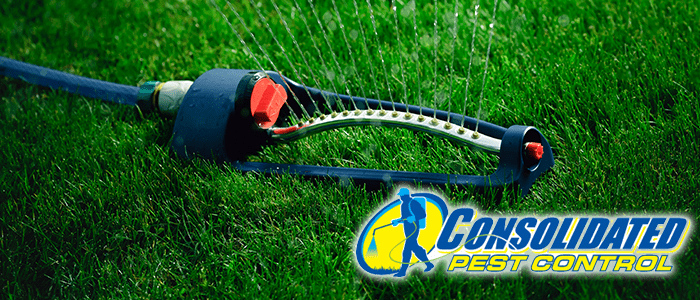
Keeping a healthy lawn going in Florida can at times feel like a losing battle, especially when it comes to water conservation. Did you know that according to the EPA (Environmental Protection Agency) that as much as 50% of the water we use for outdoor irrigation is wasted due to inefficient usage? In this article, we discuss wise watering. Read on to learn wise watering tips and what your lawn needs to keep it happy and healthy!
Know What Grass Needs
The first step to becoming more efficient with your lawn irrigation is to know your type of grass and developing an understanding of what your grass needs. For example, if your lawn consists of a regionally appropriate grass type then it’s needs are more likely to sync up with the local climate and will thus thrive with less watering on your part and overall, less maintenance.
Learn more about the best types of grass for Florida lawns.
Different grasses have different tolerance levels. For example, warm-season grasses are much more likely to thrive in the Florida climate while the cooler season grasses may have more difficulty. The biggest difference between these two regional types of grasses is in their water retention.
Cool season grasses have a tendency to lose additional water when exposed to heat, making them less efficient when it comes to managing their water content and thus requiring a more aggressive irrigation strategy.
This leads to the comparison of grasses that are resistant versus tolerant of droughts. Resistant grasses survive droughts by either retaining more water or extending their root systems deeper into the ground. Some grasses – such as the Centipede varieties go so far as to avoid drought by going dormant. Then you have some grasses such as the Buffalo grass that are basically the cactuses of the grass world and thrive in droughts.
Once you know the type of grass you have and understand what its needs are, you’ll be better suited to reduce water usage through efficient watering tactics. Thus allowing you to enjoy your lawn rather than struggling with it.
Let The Weather Tell You When To Water
Overwatering is easily accomplished by irrigation systems that have been set on a consistent schedule year-round. Unfortunately, these pre-set systems don’t take things like rainfall or the change of seasons into consideration. While you could go into a specific schedule based not only on the season and weather patterns but the grass species, it’s not common for most Floridians to do this.
So instead here is a good rule of thumb of setting up your auto irrigation schedule based on the season and your location.
- Spring: 1-2 Times Per Week
- Summer: 2-3 Times Per Week
- Fall: 1-2 Times Per Week
- Winter: 1 Time Per Week
It definitely helps to turn off your irrigation system when receiving reports of incoming rain. This will help prevent over-watering.
Pay Attention To Your Lawns Health
Another good way of knowing when your lawn is in need of a watering schedule change is to keep an eye out for signs of drought stress. These signs will tell you if you are meeting your lawns watering needs.
Signs that your lawn is thirsty:
- Normally green grass has developed a blue-gray tint
- Freshly stepped on grass doesn’t resume its original state – i.e Footprints remain visible
- Leaf-blades fold vertically (lengthwise)
How Much Should I Water My Lawn?
Homeowners need to track frequency of irrigation, as well as the amount of water that they use. Make sure to keep everything consistent. Florida soil is typically sandy which allows it to hold an inch of water per foot of soil depth. When you water your lawn, keep it evenly distributed. Only water enough to reach the roots of the plant in order to avoid any run-off or soil saturation.
Knowing how much to water your lawn is easiest when you know the type of grass you are working with and thus how deeply the roots typically go. A great way to measure the amount of water you are using is to place a glass or coffee mug in the yard and measure the amount after your irrigation is done.
Final Thoughts
Changing the way you irrigate your lawn based on its species, weather patterns, and time of year will go a long way in preventing over-watering or under-watering your lawn. Recognizing the health of your chosen grass will better allow you to make necessary adjustments for appropriate maintenance for a happier and healthier Florida lawn.








